When Cramps Hijack Your Life: Therapist-Approved Ways to Cope with Period Pain 💢🩸
Do You Ever Feel Like Your Uterus Is Out to Get You?
If you’ve ever doubled over on the couch clutching a hot water bottle, cursing the inventor of skinny jeans, and wondering how you’re supposed to “just carry on” with your day like nothing’s happening — you’re not alone. Menstrual cramps aren’t just an inconvenience you can push through with a smile and a Tylenol. For many women, they can feel like a full-on body takeover, with waves of pain that ripple through your abdomen, lower back, and even sneak their way down into your thighs. Some people describe it as a dull, constant ache, while others feel stabbing cramps that come in unpredictable bursts — either way, it’s exhausting.
But here’s the thing: cramps don’t just hurt your body. They sneak into every corner of daily life. They affect your mood, your ability to focus, your motivation, and sometimes even your relationships. It’s hard to laugh at a partner’s joke, finish a report at work, or enjoy a night out with friends when it feels like a tiny boxing match is happening inside your pelvis. And it doesn’t stop there — cramps can throw off your sleep, upset your digestion, and make everything from grocery shopping to answering an email feel ten times harder than usual.
So let’s get real. This blog isn’t about “just drink tea and lie down” — because if you’ve been there, you already know that doesn’t cut it. What you need are strategies that actually respect the complexity of what’s happening inside your body. We’ll dive into the psychology of pain, the emotional toll cramps can take, how they disrupt everyday routines, and 15 therapist-approved, practical ways to cope that go way beyond the usual advice.

Why Menstrual Cramps Are More Than Just “Period Pain”
Cramps happen when your uterus contracts to shed its lining, releasing prostaglandins — hormone-like chemicals that trigger inflammation and pain. For some women, prostaglandin levels are higher, leading to stronger cramps. Symptoms don’t stop at pain: fatigue, nausea, irritability, bloating, brain fog, and even flu-like aches can come with the package.
And the impact? It’s not just physical. Menstrual cramps can:
- Make it harder to concentrate at school or work.
- Lead to irritability in relationships, since it’s tough to be “patient” when your pain is at an 8/10.
- Trigger feelings of shame or frustration, especially in workplaces where periods are rarely acknowledged.
- Fuel anxiety or sadness if pain keeps you from social plans, exercise, or intimacy.
1. Why Cramps Actually Hurt 🔥
Menstrual cramps happen when the uterus contracts to shed its lining. These contractions are triggered by prostaglandins, chemicals that also increase inflammation. The stronger the contractions, the more the blood vessels tighten, which reduces oxygen supply to the uterus. That lack of oxygen is what creates the sharp, aching, or throbbing pain many feel in the lower abdomen, lower back, or thighs.
2. Why It Feels Like a Full-Body Experience 🌍
Even though cramps start in the uterus, the nerves involved connect throughout the pelvis, lower back, and legs. That’s why pain can radiate beyond the stomach. On top of that, the stress response kicks in — muscles tense, the heart rate rises, and digestion slows down. Suddenly, it’s not just “stomach pain,” it’s an all-over disruption.
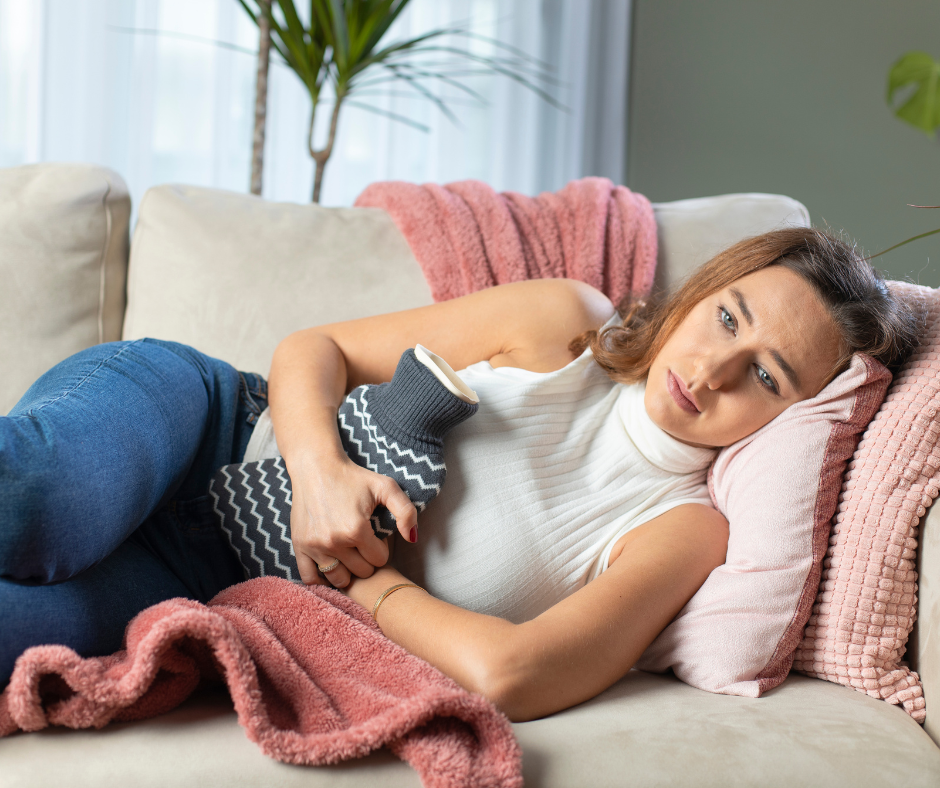
3. The Energy Drain Effect ⚡
Cramps demand a lot from the body. Constant pain uses up energy that could be going toward focus, movement, or even emotional regulation. That’s why simple daily tasks — commuting, sitting through a meeting, or cooking dinner — can feel like running a marathon. The fatigue is not laziness; it’s your body reallocating resources to manage pain.
4. Mood Shifts and Irritability 😠💔
Pain and hormones work together to impact mood. When cramps hit, the nervous system becomes overstimulated, which makes frustration, sadness, or irritability more likely. This isn’t “just being moody” — it’s a real interaction between physical discomfort and emotional processing. That’s why small annoyances can feel huge, or social interactions feel draining.
5. The Sleep Struggle 😴
Cramps often worsen at night, making it harder to fall or stay asleep. The body is already working overtime, and tossing and turning only adds to fatigue the next day. This lack of rest can show up as brain fog, forgetfulness, or a shorter fuse when handling stress at work, school, or home.
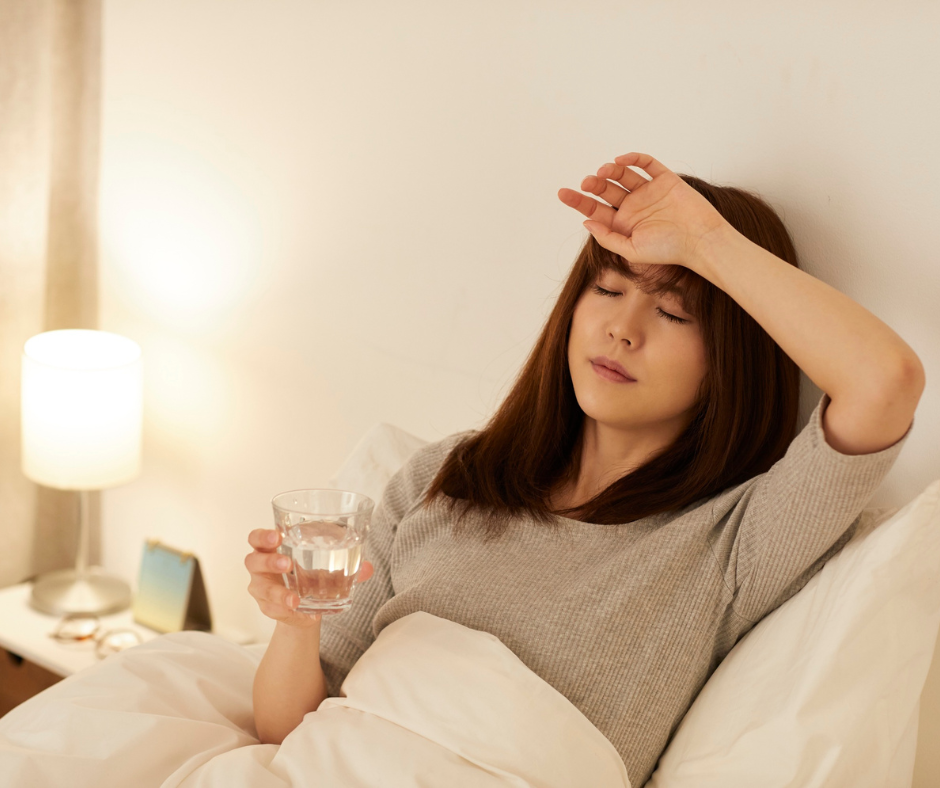
6. Digestive Drama 🍲
Cramps are closely linked to digestion because prostaglandins also affect the intestines. For many, this means bloating, constipation, or diarrhea. These symptoms can make public settings like classrooms, offices, or social events feel extra uncomfortable, especially when paired with pain.
7. Social Impact: Why Plans Feel Impossible 📅
Pain makes it tempting to cancel social activities — not because someone doesn’t care, but because sitting in a restaurant chair, laughing with friends, or even wearing jeans feels unbearable. This withdrawal can sometimes be misunderstood by others, but it’s actually the body saying “rest.”
8. Work and School Pressure 🎓💼
Cramps can make it difficult to concentrate, sit still, or participate fully in work or classes. People often push through because of expectations, but the body may still be signaling that it needs breaks, heat, or movement. This clash between body needs and external demands is one reason cramps feel overwhelming.
9. Relationship Tensions 💬❤️
When someone is in pain, communication can shift. They might feel less affectionate, less patient, or simply need more space. Partners or family members might misinterpret this as rejection. In reality, cramps alter how much emotional energy someone has to give, which is why honest communication during this time matters.
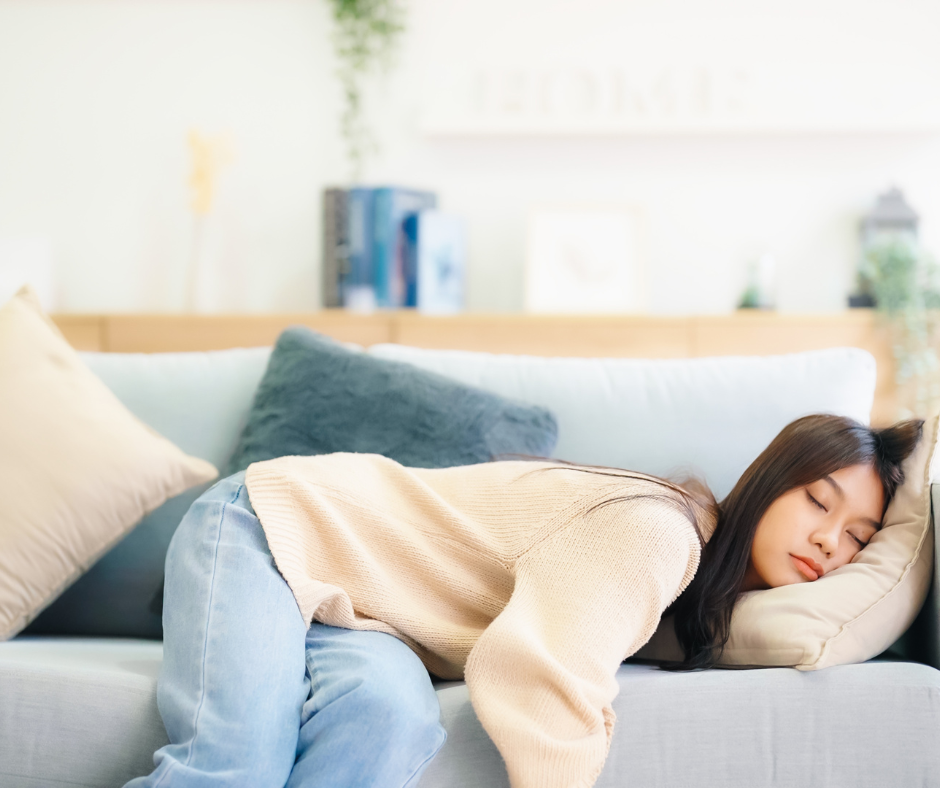
10. Why Some Cycles Feel Worse Than Others 🔄
Cramps don’t feel the same every month. Hormonal fluctuations, stress levels, diet, and sleep all affect how intense cramps become. This explains why one cycle might feel manageable while another feels unbearable, even though nothing else seems to have changed.
In short, cramps are a whole-body, whole-life experience — not just a “women’s problem” you’re supposed to grin and bear.
So let’s talk about what actually helps.
15 Therapist-Approved Ways to Cope with Menstrual Cramps
1. Heat in Creative Places 🔥
Heat isn’t just for your lower belly. Sometimes cramps radiate into your back or thighs, and moving the warmth can make a huge difference.
- Try a microwavable heating pad you can wrap around your lower back during work calls.
- Slip a stick-on heat patch under your clothes if you need relief on the go.
- A warm bath at night can double as muscle relaxation and self-soothing time.
- Some women even use a heated blanket during sleep to keep circulation flowing.

2. Breathwork That Targets the Pelvis 🌬️
Pain triggers shallow chest breathing, which can worsen tension. Slow, diaphragmatic breaths send a calming signal to your nervous system and gently massage your pelvic floor.
- Lie down, place a hand on your belly, and imagine your breath expanding downward into your pelvis.
- Inhale for 4, hold for 2, exhale for 6. Repeat for 5–10 minutes.
- Pair it with gentle music to reinforce relaxation.
3. Gentle Movement (Not the Gym Grind) 🚶♀️
Intense workouts might sound impossible, but gentle movement can increase circulation and ease pain.
- A slow walk around the block instead of a full run.
- Gentle yoga stretches like child’s pose or supine twists.
- Even just standing up and swaying side to side can loosen pelvic muscles.
4. Food That Supports, Not Fights You 🥦
Certain foods can increase inflammation, while others soothe it.
- Avoid: too much caffeine, processed sugar, or salty fast food (they can make bloating worse).
- Add: leafy greens, fatty fish, ginger tea, or bananas for muscle relaxation.
- Prep a “period-friendly” snack basket for yourself in advance so you don’t reach for what makes it worse.
5. Track Patterns Like a Detective 🕵️♀️
Pain feels random, but often there are patterns. Logging cramps helps you plan ahead and advocate for yourself.
- Use an app or journal to track pain intensity, food, stress, and activity.
- You might notice cramps are worse after poor sleep or certain foods.
- Over time, you’ll anticipate flare-ups and schedule rest days accordingly.

6. Change Your Work Setup 💻
Cramps make sitting for hours miserable. Adjusting your environment can help.
- Try a standing desk for part of the day.
- Place a small pillow behind your lower back for support.
- Keep a blanket nearby if chills or body aches hit.
7. Self-Compassion Instead of Self-Blame 💕
Many women feel guilty for being “less productive” during their period. But guilt only increases stress, which worsens pain.
- Talk to yourself like you’d talk to a friend: “My body is working hard. Rest is allowed.”
- Give yourself permission to reschedule when pain is too much.
- Remember: your worth isn’t tied to output.
8. Aromatherapy and Sensory Soothers 🌸
Scent and touch can calm your nervous system.
- Lavender or peppermint essential oils in a diffuser or applied (diluted) to temples.
- Weighted blankets for comfort and grounding.
- Cooling gel packs for when heat feels too much.
9. Hydration Habits 🚰
Dehydration makes cramps worse by tightening muscles. But chugging water isn’t the answer — steady intake is.
- Keep a large water bottle at your desk.
- Add lemon or cucumber for extra electrolytes.
- Herbal teas like chamomile can hydrate and relax muscles.
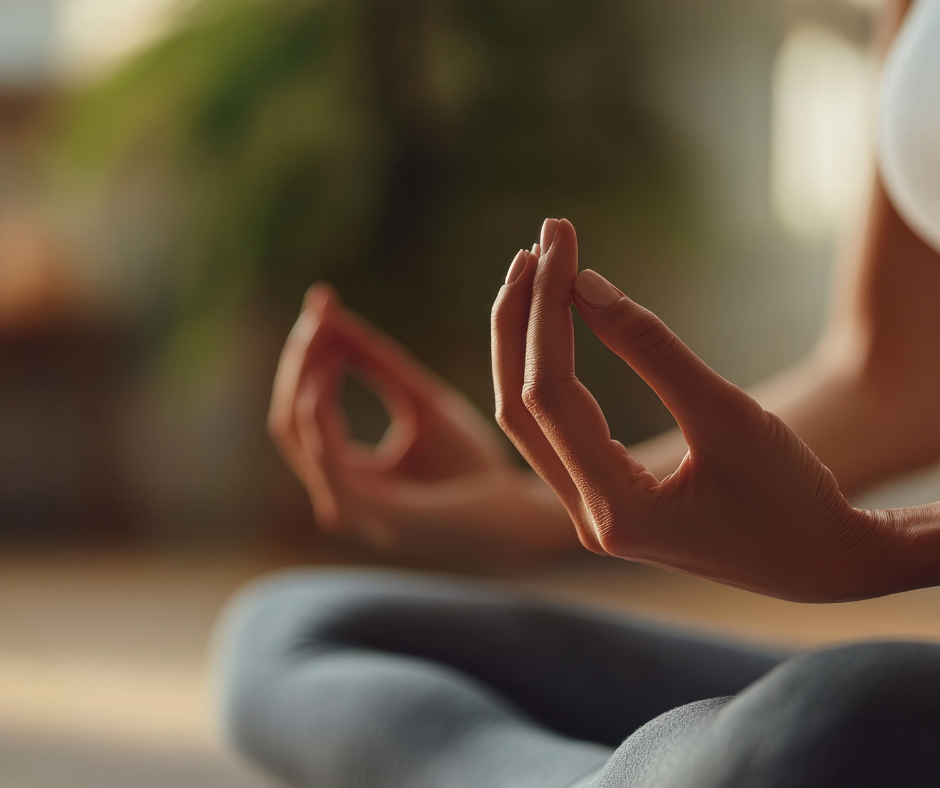
10. Sleep Rituals 🛏️
Pain often disrupts sleep, which worsens mood and energy. Creating a soothing bedtime routine can help.
- Use a heating pad before bed.
- Do 10 minutes of gentle stretching.
- Lower lights and avoid screens an hour before sleep.
11. Redefine Productivity 📅
Instead of pushing through like nothing’s wrong, redefine what counts as a “win.”
- On cramp-heavy days, one work email or one load of laundry may be enough.
- Use shorter to-do lists so you feel accomplished rather than defeated.
- Focus on small tasks that feel doable, like tidying a drawer or sending a text.
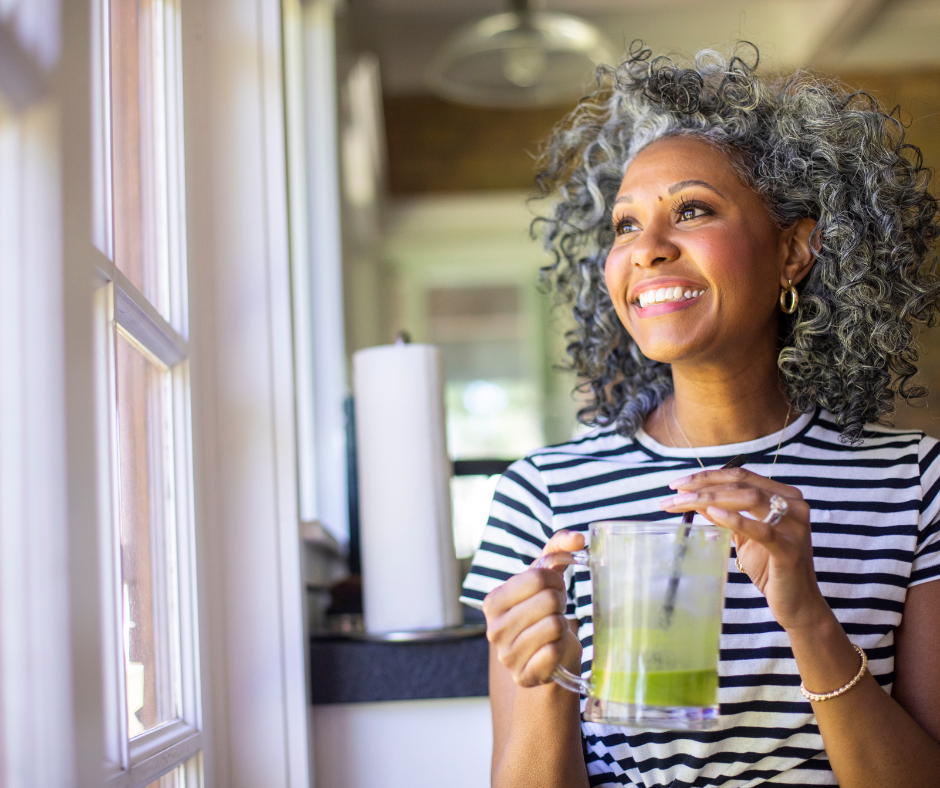
12. Connection Instead of Isolation 📱
Periods can make you want to crawl under a blanket and vanish, but reaching out can ease both pain and loneliness.
- Text a friend: “Today sucks. Want to distract me?”
- Call a sibling or parent who understands.
- Even online communities about women’s health can feel validating.
13. Cooling Techniques ❄️
Not everyone benefits from heat. Some women find relief from cooling methods.
- Try a cool shower for muscle relaxation.
- Place a cold compress on your lower abdomen.
- Alternate between hot and cold to stimulate circulation.
14. Therapy and Stress Management 🧠
Stress makes cramps worse by tightening muscles and increasing inflammation. Therapy helps you learn body-based strategies to manage stress year-round.
- CBT can reduce catastrophic thoughts like “I’ll never get through this day.”
- Mindfulness teaches acceptance without resistance.
- Therapy provides space to process frustration, guilt, or relationship stress tied to your cycle.

15. Medical Advocacy 👩⚕️
Sometimes, cramps are beyond self-care — and that’s valid. If pain is severe, it could signal conditions like endometriosis or PCOS.
- Track symptoms to share with your doctor.
- Ask about options like hormonal treatment, pain management, or referrals.
- Remember: “just deal with it” is not medical advice. You deserve real support.
Giving Yourself Permission to Rest and Reset 🌙
Menstrual cramps aren’t just “a little pain.” They can hijack your energy, your mood, your interactions, and even your relationships. They affect how you show up at work, at home, and with yourself. But you don’t have to power through in silence or settle for outdated advice.
By using therapist-approved strategies — from breathwork and self-compassion to redefining productivity and seeking medical support — you can start to reclaim control over your cycle. Healing isn’t about doing everything perfectly. It’s about finding balance, listening to your body, and giving yourself permission to slow down when needed.
At KMA Therapy, we understand that mental health and physical health go hand in hand. Supporting women means supporting the whole experience — body, mind, and emotions included. If cramps are making life feel harder than it needs to, you don’t have to face it alone.
Book your free 15-minute discovery call today and connect with one of our compassionate therapists. Together, we’ll help you find relief, regain balance, and rewrite the way you experience your cycle — with more ease, less guilt, and a lot more self-compassion






